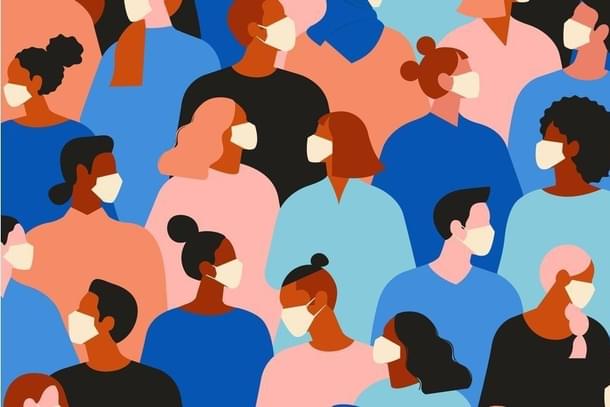News Brief
Over 60 Per Cent Indians Have Covid-19 Antibodies But 40 Crore Are Still Vulnerable: ICMR
Bhaswati Guha Majumder
Jul 21, 2021, 02:11 PM | Updated 02:32 PM IST
Save & read from anywhere!
Bookmark stories for easy access on any device or the Swarajya app.


The latest nationwide serological survey undertaken by the Indian Council of Medical Research (ICMR) has revealed that up to two-thirds of the Indian population over the age of six has already been infected with the novel coronavirus—meaning that they already have antibodies against the SARS-CoC-2 caused disease. But there are still over 40 crore people who are currently vulnerable to this virus.
This is the fourth such survey that was carried out in June and July this year after the second wave had begun to recede. A total of 28,975 people—including 7,252 healthcare workers from 70 districts and 21 states of the country—were tested for the presence of antibodies specific to the SARS-CoV-2 virus, with 67.6 per cent showing positive results. Minors aged 6 to 17 were included in the serosurvey for the first time, and antibodies were found in nearly half of them.
The latest survey results show a significant increase in the prevalence of infection among the population compared to previous similar surveys conducted in the same districts. In the third serosurvey, which was conducted between December 2020 and January this year, less than 25 per cent of the surveyed population was found to have the antibodies.
Indian Council for Medical Research (ICMR) director-general Balram Bhargava said on 20 July: "The findings clearly show that there is a ray of hope but there is no room for complacency. We have to maintain Covid-appropriate behaviour and community engagement". Additionally, stated that "the data shows that a third of the population did not have antibodies, which means 40 crore Indians are still vulnerable. However, national serosurvey is no substitute for local (state/district) variations. State-led sentinel sero-surveillance will inform further state-level action".
The fact that two-thirds of India's population has already been infected by the virus—and that the seroprevalence is the same in rural and urban areas—minimizes the chances of a new wave of infections as severe as the second. Moreover, it is also because at least one dose of Covid-19 vaccines has been administered to around 32 crore people. Although there is likely to be some overlap between those who have been infected and those who have received the vaccination, the two data together suggest that over 70 per cent of the population over the age of six has gained some form of immunity against the novel virus caused disease.
Experts also believe that unless the virus mutates further to evade vaccine driven immunity, the possibility of another dangerous wave like the second one is low. But it also doesn't mean that a small, localized Covid-19 surge will not occur. In terms of Covid-19 cases at a national level, with a vulnerable population of 40 crores, there is a possibility of surges similar to the first wave.
When ICMR's Bhargava was asked that whether the government would plan to open the schools, he said that primary schools might open first, followed by secondary schools, adding that children's antibody exposure is pretty similar to adults. It was found that seroprevalence among the minors was 57.2 per cent in the age range 6 to 9 years and 61.6 per cent in the age group 10 to 17 years.
In terms of vaccination, the Niti Aayog member (health) VK Paul said: "It is preferable to get immunity by vaccination, not by infection. That is why we need to continue with our strategy of test, treat and vaccinate and also strict containment measures". As reported, the seroprevalence was 62.3 per cent among those who had received Covid-19 vaccines, 81 per cent among those who had received one dosage and 89.8 per cent among those who had received both doses. Sero-prevalence was also found to be greater in women compared to in males. The 45-60 age group had the greatest percentage—77.6 per cent—among the various age groups.
Bhargava said that the differing sero rates imply the probability of future infection waves. According to him, there may be some states where the vulnerable population is higher, and as a result, the likelihood of subsequent waves is higher in those regions. According to him, social, public, religious and political gatherings should be avoided at all costs. He also cautioned against non-essential travel and only travelling if fully vaccinated, claiming that these were the survey's messages.





